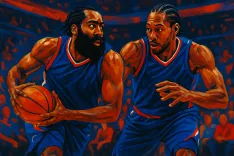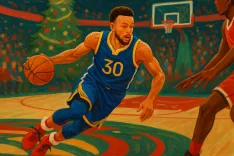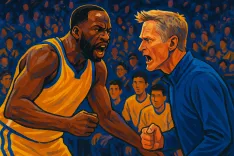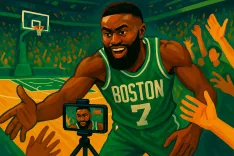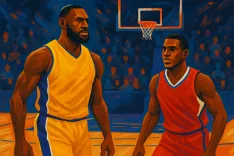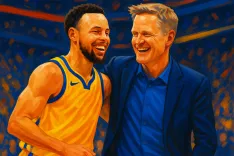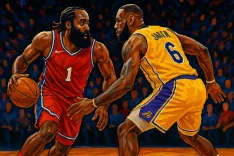Zach LaVine and Potential Trade Dynamics for the Chicago Bulls

Zach LaVine's recent resurgence in performance has not yet significantly impacted the NBA trade market. Reports from Joe Cowley of the Chicago Sun-Times indicate that the Chicago Bulls have not engaged in any "serious talks" regarding a potential trade for LaVine, stating, "Phone calls have been made, but that's about it." With the trade deadline approaching on February 6, there is speculation about whether this situation might evolve.
LaVine comes with a set of complexities that could influence trade discussions. His injury history raises concerns, as does the elephant in the room regarding the Chicago Bulls' overall success in recent seasons, paired with the substantial value of his contract. However, the offensive prowess LaVine possesses is undeniable and could attract potential suitors willing to overlook these drawbacks. A team such as the Detroit Pistons may see an opportunity for a valuable acquisition. A healthy LaVine could be a game-changer on offense, particularly for a Pistons team that ranks 17th in offensive efficiency and is in need of a reliable scoring partner alongside Cade Cunningham, especially with Jaden Ivey facing an indefinite absence due to a broken leg.
The Pistons, currently hovering around the .500 mark after several years of struggle, face a pressing need for a second star, especially in light of Ivey's injury. Cunningham has carried significant responsibility this season, and the pressure has mounted in Ivey's absence. The addition of LaVine, who is one of only 11 players averaging over 23 points, four assists, and three three-pointers per game, would alleviate some of this burden on Cunningham. Even with the possibility of LaVine's shooting percentages regressing from his impressive current rates—51.3 percent from the field and 45.1 percent from beyond the arc—the threat of his offensive skills could draw defensive attention, significantly aiding the Pistons. The notion of addressing both individual player needs and collective team ambitions makes pursuing LaVine an appealing prospect as Detroit aims higher than merely reaching the play-in tournament.
A potential trade scenario could see the Pistons acquiring LaVine in exchange for Tim Hardaway Jr., Simone Fontecchio, Marcus Sasser, and a 2025 second-round pick from Toronto. The Pistons are poised to capitalize on their unexpectedly competitive standing; if they continue their current trajectory, they could find themselves in the playoff picture. Their future appears promising, yet there is intrigue in speeding up the process to assess the team’s response to added talent. The contractual implications of LaVine’s acquisition are manageable, given the number of Pistons’ rotation players on rookie-scale contracts. Furthermore, the output from Hardaway does not compare to LaVine's capabilities, while Fontecchio and Sasser have played limited roles this season. The depth of Detroit's draft assets provides room to maneuver, allowing the team to consider giving up a second-round pick without significantly impacting their future.
The Bulls, meanwhile, have been waiting for LaVine's market perception to improve, shifting from negative to neutral value. Given the stagnation in interest, even a modest trade yielding some value would represent a step forward for Chicago's front office. This proposed deal, while not overwhelmingly lucrative, holds promise. Hardaway's expiring salary of $16.2 million could afford Chicago financial flexibility and offensive depth. Meanwhile, Fontecchio’s reasonable contract and potential contributions to the forward rotation could be beneficial if the Bulls pursue trades involving other players like Patrick Williams. Notably, the inclusion of Sasser—a 2023 first-round pick—along with a second-round pick from the struggling Raptors creates future potential for Chicago. Sasser’s emerging play, as evidenced by his shooting metrics and secondary playmaking capabilities, could contribute to the team's long-term strategy. Although the Bulls may not secure immediate franchise-altering assets, capturing two rotation players for the future could represent strategic progress for a team that has faced challenges in fully committing to a rebuild.
